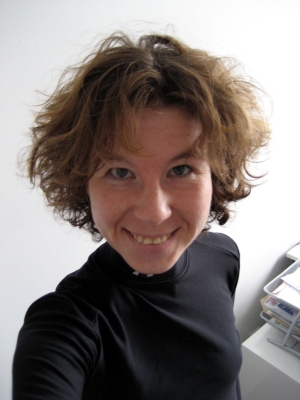 On Wednesday night, accompanied by Tameem, a student of mine, I wandered across campus to attend the “Mathematics in Music” event. I blogged about it earlier. I don’t really want to talk about the event itself in this post. It was a nice enough recital of three pieces. I don’t know why, but the promised “mathematics” was disappointingly virtually non-existent. I’m not exaggerating, I’m afraid.
On Wednesday night, accompanied by Tameem, a student of mine, I wandered across campus to attend the “Mathematics in Music” event. I blogged about it earlier. I don’t really want to talk about the event itself in this post. It was a nice enough recital of three pieces. I don’t know why, but the promised “mathematics” was disappointingly virtually non-existent. I’m not exaggerating, I’m afraid.
Keep in mind that it may simply just be my misunderstanding of the intent of the event, but there’s simply next to nothing to report in the way of what was said about mathematical aspects of music. There were plenty of opportunities, but (almost) none were taken. I got out my notebook and pen, all excited at what the presenters might say at various points… and the mathematics never showed up. There were a few extremely elementary remarks about tonal ratios in chords, about scales, keys, and time, and that was it, more or less. This was a bit of a shame, since I suspect that Elaine Chew could have talked at length and with some authority on the matter (given the projects she’s involved in see e.g. here), but mathematics was almost completely missing in the event – despite the title. I imagine there were what seemed like good reasons for this. I was not party to decisions made behind the scenes, so cannot comment further.
More interestingly on that front was what took place in the minutes leading up to the delayed start of the event. First, although it was a free event, they pointed us to the box office where an attendant printed us two tickets from the computer so that we can show them to someone at the door who wasn’t really looking anyway. Fine. We got into the recital hall, but rather than sitting at the obvious available seats, I suggested that we move to the other side of the room where one can get a better view of the piano keyboard. I’m less than happy when I can’t see what a musician is doing, you see, so I always try to sit with the pianist’s view of the piano. So we did that, and found two seats. While we chatted and looked around us at the growing assembly, I spotted a friend and colleague of mine, the composer Veronika Krausas. She was in the company of someone who she introduced as Brian Head, who is a composer, performer (guitar) and music theorist (a “triple threat”, Veronika joked), also in USC’s Thornton school of music. They were looking for seats and there was one on either side of the two we were sitting in, and so they joined us and we chatted some more.
When the event start was about ten or fifteen minutes late -they were trying to get the reassuringly large crown all seated, they announced- Veronika idly looked at her ticket, pointed out that they were numbered, and wondered if we should have been […] Click to continue reading this post →

 Today, a guest post. I’m excited, because it’s from one of my favourite bloggers, Sabine Hossenfelder, or “Bee” as you may know her from her comments here, and of course her blog
Today, a guest post. I’m excited, because it’s from one of my favourite bloggers, Sabine Hossenfelder, or “Bee” as you may know her from her comments here, and of course her blog 



